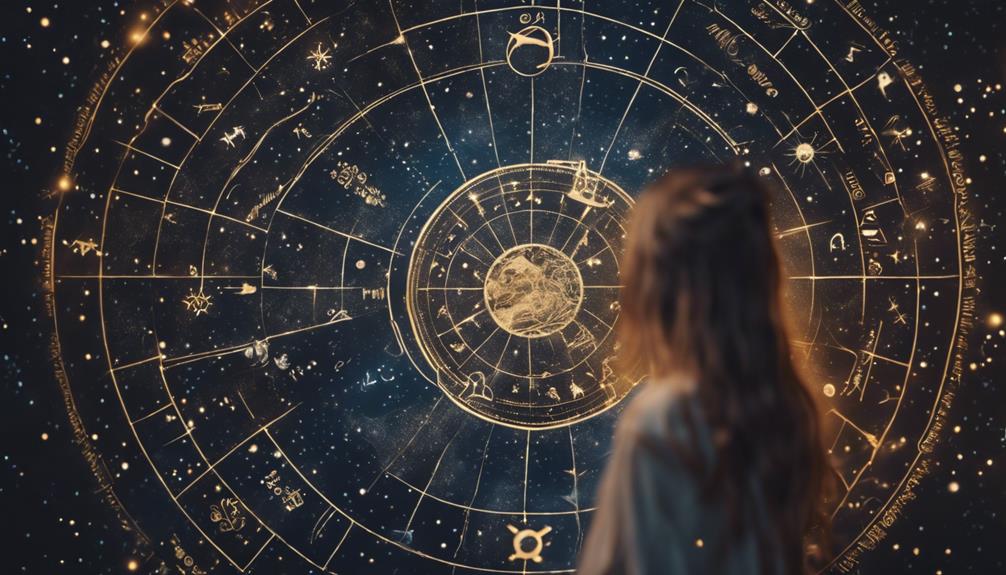Who Invented Astrology In India
The question of who is credited with the invention of astrology in India is a topic that sparks curiosity and invites a deeper exploration of ancient wisdom. While Varahamihira is often recognized for his significant contributions to Indian astrology during the 6th century, the origins of this intricate system of knowledge and belief are multifaceted. Delving into the historical context and the evolution of astrological practices in India reveals a rich tapestry of influences that have shaped this mystical science over millennia. The exploration of early Indian beliefs, cultural influences, and the advanced skills of ancient astrologers presents a fascinating journey into the genesis of astrology in India.
Key Takeaways
- Astrology in India has ancient origins, with no single inventor.
- Early Indian beliefs integrated celestial influence into daily life.
- Varahamihira made significant contributions to Indian astrology in the 6th century.
- Rigveda's celestial hymns influenced astrology practices in India.
- Cultural exchanges enriched Indian astrology with global influences.
Early Indian Beliefs on Celestial Influence

In the ancient Indian context, early beliefs on celestial influence underscored a fundamental connection between celestial bodies and human existence. Astrological beliefs were deeply rooted in the idea that celestial connections directly impacted various aspects of life on Earth.
Ancient Indians perceived celestial bodies as influential forces shaping human destinies and behaviors. The alignment of stars and planets was thought to hold significant meaning, guiding individuals through life's journey.
These astrological beliefs laid the foundation for the development of complex systems of interpreting celestial movements and their effects on human affairs. The intricate relationship between celestial connections and human existence formed the basis for the evolution of astrology in India, shaping its rich cultural and spiritual significance.
Varahamihira's Contributions to Astrology
Varahamihira's pivotal role in shaping the foundations of Indian astrology is evident through his significant contributions to the field during the 6th century. His legacy lies in advancing Indian astronomical knowledge and astrology through works like Brihat Samhita and Panchasiddhantika.
Varahamihira's teachings formed the basis of Indian astrology, introducing concepts that enriched the understanding of celestial phenomena. His work not only influenced his contemporaries but also laid the groundwork for future astrologers to build upon.
Varahamihira's profound understanding of Indian astronomical advancements contributed to the development of astrology as a science, showcasing his enduring impact on the field and solidifying his position as a revered figure in the history of Indian astrology.
Influence of Rigveda on Astrology

The influence of the Rigveda on astrology is profound and foundational in the development of astrological practices in India.
The Rigveda, one of the oldest holy texts, contains celestial hymns dedicated to cosmic connections between celestial bodies and human life. These hymns emphasize the significance of celestial gods and their influence on human existence, laying the groundwork for understanding astrological principles.
Indian astrological practices draw inspiration from these cosmic connections described in the Rigveda, shaping the belief in the interconnectedness of celestial phenomena and human affairs.
The celestial hymns in the Rigveda have provided a spiritual and philosophical basis for the evolution of astrology in India, influencing how astrologers interpret planetary movements and their impact on individuals.
Cultural Influences on Indian Astrology
Cultural diversity has played a significant role in shaping the evolution of astrology practices in India. Global astrological influences have contributed to the rich tapestry of Indian astrology, leading to cultural adaptations and modern interpretations.
Over the centuries, various civilizations such as Mesopotamia, Greece, Persia, and Arab scholars have influenced Indian astrological practices. These global interactions have enriched astrological techniques in India, fostering a vibrant exchange of ideas and methodologies.
The integration of diverse cultural elements has not only broadened the scope of astrological practices but has also allowed for the development of unique and innovative approaches to interpreting celestial phenomena within the Indian astrological framework.
Evolution of Astrological Techniques in India

Throughout the centuries, the refinement and advancement of astrological methods in India have been a testament to the continuous quest for precision and depth in interpreting celestial influences.
- Integration of Modern Applications:
- Astrologers in India have embraced modern technology to offer services like online consultations and software-generated charts.
- Addressing Scientific Criticisms:
- Despite scientific criticisms, astrologers are adapting by emphasizing the psychological and symbolic aspects of astrology rather than claiming direct causal relationships.
- Enhanced Data Analysis:
- Astrologers are incorporating statistical methods and data analysis techniques to study the effectiveness and accuracy of astrological predictions.
- Educational Reforms:
- Efforts are being made to standardize astrological education, ensuring practitioners are well-equipped to meet the challenges of the modern world.
Ancient Indian Texts and Authors
How did ancient Indian astrologers contribute to the development of astrology through their texts and teachings?
Sage Parashara's teachings in Brihat Parashara Hora Shastra and other scholars like Neelakantha provided crucial insights into planet arrangements and celestial motions. These ancient texts, including Brihat Jataka, Laghu Parasari, Phaladeepika, and Saravali, offered in-depth knowledge about the impact of celestial bodies on human life.
Authors such as Acharya Varahamihira, Mantreswara, and Kalyana Varma further enriched astrology by proposing concepts like yogas and dashas, still relevant in modern astrology.
Through their intricate systems and advanced mathematical and astronomical skills, ancient Indian astrologers laid the foundation for astrology as a science, influencing various aspects of life including medicine and agriculture.
Advanced Skills of Indian Astrologers

Ancient Indian astrologers honed their craft with advanced mathematical and astronomical skills, laying the groundwork for astrology as a science.
- Mathematical Precision: Indian astrologers employed precise mathematical calculations for celestial events.
- Astronomical Calculations: They meticulously calculated planetary positions and movements.
- Yogas Evolution: These astrologers developed intricate combinations called yogas to interpret planetary influences.
- Dashas Evolution: The concept of dashas, representing planetary periods, evolved through their observations.
These skills allowed ancient Indian astrologers to delve deep into the mysteries of the cosmos, influencing not only individual destinies but also broader societal beliefs and practices.
Astrology's Impact on Indian Society
The enduring influence of astrology in Indian society is deeply intertwined with personal decisions, societal practices, and cultural traditions. Social implications of astrology are widespread, impacting marriage compatibility, career choices, and even political decisions.
Modern applications of astrology have expanded its reach, with technology enabling easy access to horoscopes and consultations. Parents often rely on astrology to make crucial decisions for their children, from education to marriage. Astrology also plays a role in selecting auspicious dates for events like weddings and housewarmings.
Despite facing skepticism, astrology remains deeply ingrained in Indian society, offering a sense of security and control during uncertain times. Its ability to guide individuals through life's choices showcases its enduring relevance and cultural significance in India.
Conclusion
In conclusion, the origins of astrology in India can be attributed to various scholars and sages, with Varahamihira playing a significant role in shaping the field during the 6th century. His work, such as the Brihat Samhita, advanced Indian astronomical knowledge and laid the foundation for astrology as a science.
Indian astrology continues to be influenced by cultural beliefs and ancient texts, with astrologers possessing advanced skills that have a profound impact on Indian society.
🔴 Need Clarity on your Situation?



